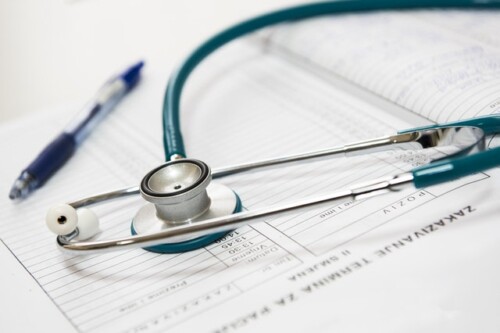Mongolia’s mobile health clinics bring primary health care to vulnerable communities
The mobile health team screens herders and their families for communicable and non-communicable diseases, signs of cholesterol and sugar in their blood and they offer ultrasounds for women. One month ago, through this service, Norov was diagnosed with gallbladder and kidney problems and was referred to the nearest local (sub-province or soum) health centre, where a specialist gave him the medicines he needed.
“Because of the mobile health screening, I was diagnosed early and received timely treatment. The health professionals advised me to cut down my salt and animal fat intake. I know that health is wealth and that I need to make healthy living choices now, irrespective of financial challenges,” said Norov.
With a vast land area, Mongolia faces many challenges in delivering health services to its citizens especially those living in disadvantaged and remote rural areas, including vulnerable and nomadic populations, migrants and unregistered people.
From 2016-2020, the government operated an initiative called: ‘Expanding use of mobile health technology in primary health care (PHC) towards universal health coverage in Mongolia’ or M-Health. It was supported by WHO, through the UHC Partnership and the Korea Foundation for International Health Care and Community Chest of Korea.
Mongolia is among the 115 countries and areas to which the UHC Partnership helps deliver WHO support and technical expertise in advancing universal health coverage (UHC). The Partnership is funded by the European Union (EU), the Grand Duchy of Luxembourg, Irish Aid, the Government of Japan, the French Ministry for Europe and Foreign Affairs, the United Kingdom – Foreign, Commonwealth & Development Office and Belgium.
Reaching remote groups through mobile health
The Mongolian State Policy on Health (2017-2026) identifies the “need to expand the use of mobile service and technologies at the primary health care level to better reach out to target groups such as people in remote areas and the poor and vulnerable populations”.
The M-Health initiative is now being implemented in 21 provinces across Mongolia and 9 districts in Ulaanbaatar City.
As part of the initiative, PHC providers conduct integrated health services through three types of service delivery: home visits, mobile health services combined with home visits and health centre services. All these include health examinations, screening and health promotion activities related to maternal and child health, communicable diseases and non-communicable diseases. Mobile health services, in combination with home visits, are mostly used to reach disadvantaged communities, including herders, migrants, and low-income groups.
The Government of Mongolia, along with local governments, recognized the value and cost-effectiveness of reaching remote and disadvantaged populations. As a result, since 2016, this initiative has been expanded to another 121 local areas supported mostly by local governments and a few of them supported by development partners and private companies. In 2021, in order to maintain essential health services during the COVID-19 pandemic and beyond, WHO has been continuously providing support in other 63 remote areas.
Primary health care and universal health coverage
Many health issues, as well as COVID-19, have the gravest impact on people who are socially, economically or geographically disadvantaged. Addressing equity and reaching those most in need of health services requires a strong focus on PHC for UHC, as a response to current and future health challenges. The UHC Partnership will continue to support the government with the expansion of telemedicine, mobile services and mobile and portable technologies at the PHC level, including rapid COVID-19 tests as a cost-effective measure. The Partnership will also support the strengthening of multisectoral collaboration to address health for all policies.

